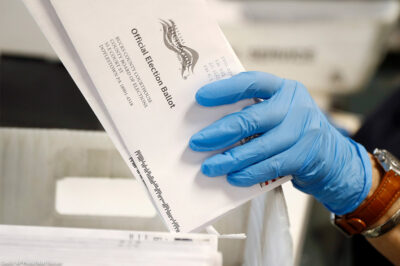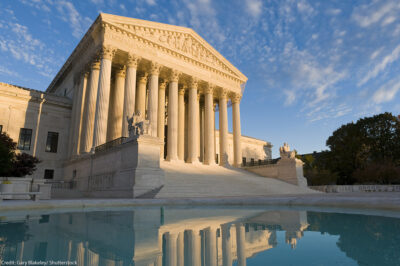Settlement Reached in Florida Election Lawsuit; Punch Card System Continues to Face Scrutiny Nationwide: Statement of Laughlin McDonald, Director, ACLU Voting Rights Project
FOR IMMEDIATE RELEASE
ATLANTA- The American Civil Liberties Union welcomes the proposed settlement announced today of a class-action lawsuit filed against the state of Florida and seven counties after many minority voters were disfranchised during the controversial 2000 presidential election.
The ACLU joined the lawsuit, NAACP v. Harris, two years ago with civil rights advocates from the NAACP, NAACP Legal Defense Fund, the Lawyers’ Committee for Civil Rights Under Law, People For the American Way Foundation, the Miami law firm of Williams & Associates and The Advancement Project.
Ensuring voter education standards, the implementation of the “”motor voter”” law, and properly trained poll workers are probably the most important elements of the proposed settlement. These reforms will work to address many the troubling voting issues facing Floridians.
It is important to note, however, that the important issue of ex-felon reenfranchisement was not addressed in the proposed settlement. The ACLU will continue to work with community-based organizations and state legislatures to restore the right to vote to individuals who were once incarcerated.
Today’s proposed settlement provides for monitoring to ensure the effective implementation and enforcement of its various provisions. It awaits court approval and it must also be precleared under the Voting Rights Act, so the settlement will not be in place in time for the November elections. We urge state officials to do everything they can do ensure that those elections do not result in any further violations of voting rights. are conducted in a fair and manner.
Some provisions of the settlement include:
- Greater accuracy in the maintenance of voter registration rolls to ensure that eligible voters are not erroneously removed from the voter lists in future elections and restoration of voters who were wrongly removed prior to the 2000 elections.
- Greater statewide uniformity in Election Day procedures by ensuring easy access to countywide voter registration information; availability of alternative voting procedures like provisional ballots and voting by affirmation; and adequate polling place staffing and poll worker training.
- State monitoring and coordination to ensure that state agencies provide required voter registration opportunities and to ensure that the counties carry out state list maintenance programs in a uniform and non-discriminatory manner.
- Allowing the motor vehicles department to automatically change the customer’s address for voting purposes, unless the customer specifically does not want to do so. (Several voters were turned away from the polls during the November 2000 election because they thought they had updated their voter registration when they changed their address at the motor vehicles office. Some of these voters also were not offered the opportunity to vote by affirmation at their new precinct as required by federal law.)
- Providing marketing notices in mailings and other customer communications regarding opportunities to register to vote at motor vehicles department offices.
In addition to today’s case, attorneys working with the ACLU filed similar lawsuits challenging the use of punch card machines in Georgia, California and Illinois. The theory in these cases was that the selective use by the states of error prone technology violated the equal-treatment-of-voters standard articulated by the Supreme Court in Bush v. Gore.
The case in Georgia proceeded on a faster track than the litigation in Florida and California, and was resolved after the state decertified further use of punch card machines and provided for the implementation of new voting systems by the 2002 general election. In California, further use of punch card machines was declared unconstitutional by the federal court but new equipment will not be in place until the primaries in 2004. In the Illinois case, a court recently rejected the government’s motion to dismiss the lawsuit, giving a green light to the ACLU’s legal theories.
For more information on these and other voting rights cases related to the 2000 election, go to /votingrights/er/index.html
Stay Informed
Sign up to be the first to hear about how to take action.



